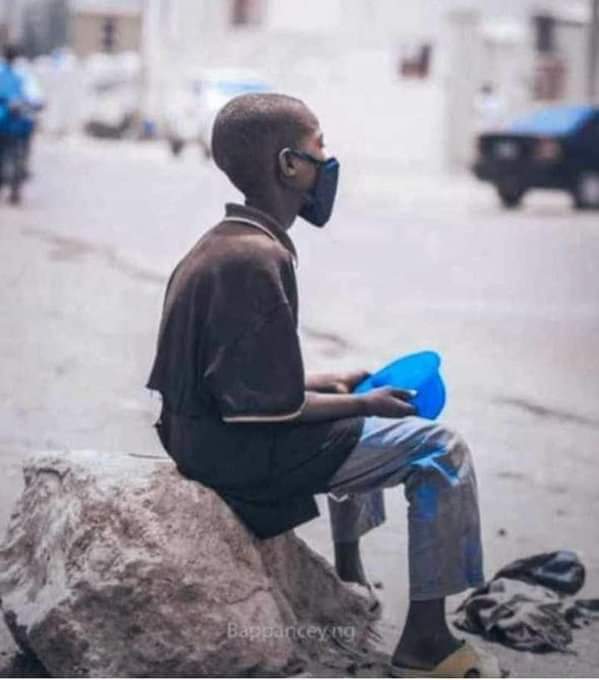Global Issues
The Fate Of The Abandoned -By Abubakar Magaji Dawud
His name is Habibu, from a village in Katsina state. He was sent to “Tsangaya” a year ago and has not heard from his family or relatives any further. When asked whether he was happy staying here or not, he was not sure as he recollected memories of the living nature of his village. At least he was not disappointed with his presence in city.

Moaning, shivering and obviously subconscious lain a boy on a street around the neighborhood.
The ‘Almajiri’ has been used and abused as a tool of mockery — Apparently one of the major social ills that the North is yet to reform. The system has been used as a shorthand for the want to point at poverty, weakness, limitations and hunger that bedeviled the otherwise fertile and arable North.
I feel unsettled rather than happy when friends from other regions of the country, and sometimes, from the North tell me that I don’t behave like a Hausa or that I’m better off than many within my age cycle. I consider the statement to represent a pool of misconceptions about the Hausas and the North. The statement if observed critically, holds in itself a wealth of stereotypes targeted at the dominant Hausa’s North.
A lot crossed my heart as I was sceptical about helping this poor boy. I was stuck between being a good Samaritan or just playing innocent. The gesture in itself was morally commendable but might have attracted legal condemnation had something went wrong. I chose to help and damn the consequence.
I offered some meds and requested the boy to check on me when he felt better.
Two days later, I saw him approach me while I was sitting in the veranda of our compound.
The skin around his eyes suggested a child of about eight years, bare-feeted, wearing a torn oversized shirt and a crazy-like torn faded trouser. A mild smell radiated from his body as he came closer.
I maintained eye contact as he approached while my mind has gone sunk in the ocean of thoughts.
“Salamu alaykum,” he greeted — breaking into my thoughts and bringing me back to the present. “Wa alaykumussalam”, I murmured. I made him felt at home and ready to answer my questions.
His name is Habibu, from a village in Katsina state. He was sent to “Tsangaya” a year ago and has not heard from his family or relatives any further. When asked whether he was happy staying here or not, he was not sure as he recollected memories of the living nature of his village. At least he was not disappointed with his presence in city.
I then asked him the clinched question most children are faced with, “what would you like to be when you grow up?”, he chuckled and replied “Ban sani ba” (“I don’t know”).
For children like Habibu, whose dreams have slowly dissolved into the background of a harsh reality, the most they can think of is getting through the day. There is little hope and little disappointment. Their reality is both infuriating and exasperating.
The egregiousness and ineptitude of the outdated system must be checked, confronted and corrected with all sincerity of purpose. Gone are the days for minor skirmishes.
This calls for an overall overhaul of the system and for setting achievable goals in enrolling our children both in formal and informal schools.
There are ways to thwart the menace, most effectively, poverty reduction and quality education. We must rout street begging and reform the ‘Almajiri’ system for the better, for good. The concept of a child defying the stress of nature and environment to fend for himself must be tamed sooner than later.
These are purely the opinions of the writer.
Thank you.
Abubakar Magaji Dawud (Peacemaker)
600L, PharmD,
Bayero University, Kano.
05/10/2021









